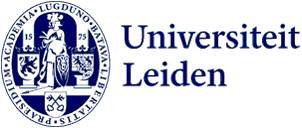131 search results for “catalysis surface” in the Student website
-
 Hakan Çamoglu
Hakan ÇamogluFaculty of Science
-
 Titus de Haas
Titus de HaasFaculty of Science
-
 Lan Wang
Lan WangFaculty of Science
-
 Vasiliki Tsina
Vasiliki TsinaFaculty of Science
-
 Padmaja Kar
Padmaja KarFaculty of Science
-
 Art Hoti
Art HotiFaculty of Science
-
 Joeri Schoenmakers
Joeri SchoenmakersFaculty of Science
-
 Lisa Rieger
Lisa RiegerFaculty of Science
-
 Licheng Wei
Licheng WeiFaculty of Science
-
 Agur Sevink
Agur SevinkFaculty of Science
-
 P.J. Veth
P.J. VethNonnensteeg 1-3, Leiden
-
 Maarten van Ginkel
Maarten van GinkelFaculty of Science
-
 Lolita Dsouza
Lolita DsouzaFaculty of Science
-
 Bas Kreupeling
Bas KreupelingFaculty of Science
-
 Andy Jiao
Andy JiaoFaculty of Science
-
 Sjoerd Verbeek
Sjoerd VerbeekFaculty of Science
-
 Corjan van de Griend
Corjan van de GriendFaculty of Science
-
 Suzanne Assen
Suzanne Assen -
 Maarten van 't Zelfde
Maarten van 't ZelfdeFaculty of Science
-
 Grégory Schneider
Grégory SchneiderFaculty of Science
-
 Francesco Buda
Francesco BudaFaculty of Science
-
 Glyn Muitjens
Glyn MuitjensFaculty of Science
-
 Sylvestre Bonnet
Sylvestre BonnetFaculty of Science
-
Leiden biologists find nanoplastics in developing heart
Nanoplastics can accumulate in developing hearts, according to a study by biologist Meiru Wang from Leiden University. Her research on chicken embryos sheds new light on how these tiny plastic particles pose a threat to our health.
-
App helps students study better
Cramming from a book, making notes or learning summaries. In the past these were about the only ways to memorise your course material. But that has long since changed. Multimedia is the code word. But is it effective?
-
EUniWell discovery project in full swing
The ‘Discovery of the Entrepreneurial Ecosystem of EUniWell’s Consortium’s Members’ project has received a EUniWell seed grant. Sjoerd Louwaars, the representative from Leiden University, talks about the project and the first results.
-
Why we need to look underwater to understand our past
Traces of the past remain hidden in rivers, lakes and seas. In his inaugural lecture Martijn Manders will explain why underwater archaeology is important to understanding our history.
-
Inspiration session art project [s]TATTOO
Share your ideas on social safety
-
Leiden vegan student association off to a flying start
Good food. This is an important topic in the interview with Chair Ruben Venema and Activities Director Martine Feteris from the Leiden Vegan Student Association, which was launched in May. An interview rounded off with an extra helping of recipes.
-
Leiden Shorts - Pluto in Aquarius: Celestial Bodies
Film Festival
-
‘Let’s try not to lose sight of each other’ – Interview with Annetje Ottow
The conflict between Israel and Hamas has had a clear impact on Leiden University. Students and staff are angry or scared, feel unsafe and are experiencing group pressure.
